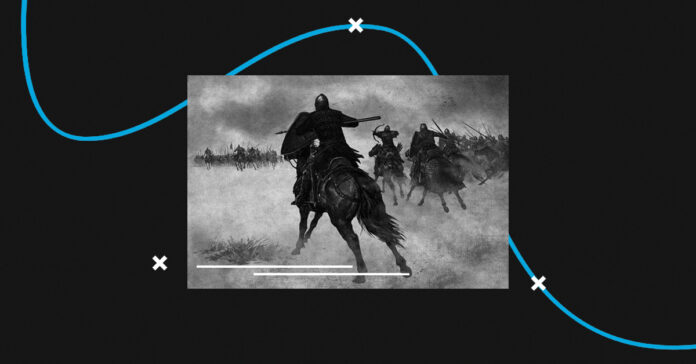The events of the Battle of Badr established a clear distinction not only between truth and falsehood, but also between the people of the truth and the people of falsehood. The separation of Muslims from polytheists reached its culmination on the Day of Badr, a day during which the Companions had to choose between opposing loyalties — loyalty to relatives and loyalty to religion. It was a day during which relatives were pitted against one another — brother against brother, father against son, etc. Loyalties were no longer based on the distinction between relatives and non-relatives, but instead on the distinction between fellow Muslims and non-Muslims.
So, for example, Abu Hudhaifah ibn ‘Utbah ibn Rabee’ah (RA) fought on the Muslim side, while ‘Utbah, Al-Waleed, and Shaibah — his father, brother, and uncle respectively — fought on the side of the polytheists and were all killed during the duels that preceded the battle. Also, Abu Bakr As-Siddeeq (RA) was of course with the Muslims, whereas his son, ‘Abdur-Rahmaan, aligned himself with the polytheists. And Mus’ab ibn ‘Umair (RA) was the flag-bearer of the Muslim army, while his brother, Abu ‘Azeez ibn Umair, fought in the army of the polytheists. It is interesting to note that, when Abu ‘Azeez was taken captive by one of the members of the Ansaar, Mus’ab (RA) said to that Ansaaree, “Hold on to him tightly with your hand, for indeed, his mother owns a great deal of wealth,” to which Abu ‘Azeez responded, “My brother, this is the advice you give regarding me!” Mus’ab (RA) said, “He, and not you, is my true brother.” Such was the reality of the distinction between the people of the truth and the people of falsehood. “He, and not you, is my true brother”: These were not empty words; to the contrary, they represented values that became firmly ingrained in the personalities of the Prophet’s Companions. For them it was faith, and not blood ties, that established a link between one person and another.
The slogan of the Muslims on the Day of Badr was “One, One,” referring to the Oneness of Allah (SWT), and announcing that their fighting was not motivated by tribalism, patriotism, nationalism, or by the desire to get revenge; instead, the only factor that prompted them to fight was faith in Allah alone.
[The Noble Life of the Prophet (ﷺ) by Dr. Ali Muhammad As-Sallaabee, vol. 2, p. 1046]









